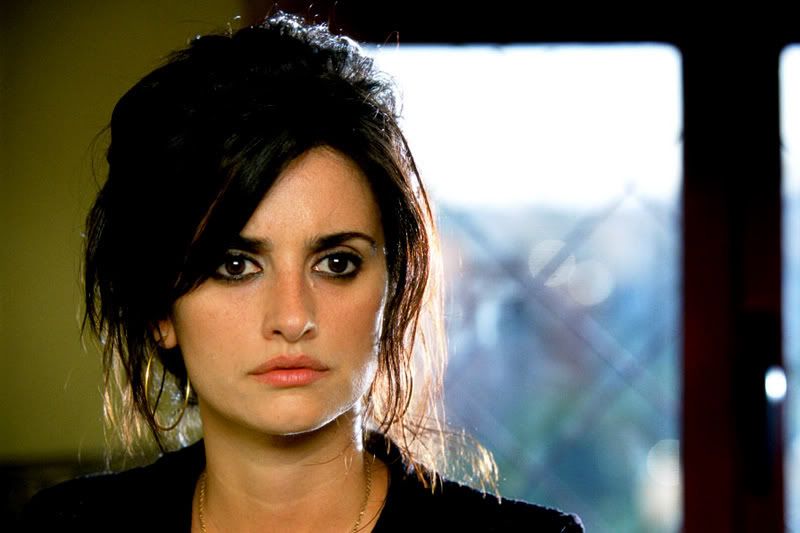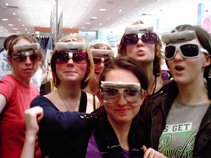Thankfully, the film is still more LOTR than Hogwarts or Narnia in the depth of story, visuals and general tone. The comparisons to the LOTR trilogy are numerous; from the opening image of New Line’s logo that still immediately brings to mind the trilogy (The Fellowship of the Ring was, I think, the first film in which I took note of the production company) to the presence of Ian McKellen (wonderful as the voice of the armoured bear, Iorek ) and Christopher Lee (woefully underused). Unlike Harry Potter, which mixes the mundane and the magical to comedic effect, The Golden Compass is fully immersed in its magical aspects. Set in a world parallel to our own, where our souls are represented as tangible animals called Daemons who walk beside us and the menacing Magisterium (a thinly veiled version of the Church) watch over everything, the story
 concerns the orphan girl Lyra (a spirited performance by the “other” Dakota) who lives in Oxford under the guidance and tutorage of her uncle, Lord Asriel (Daniel Craig, who deserves much more screen time). To describe the intricacies of the plot would be futile, as I have no idea where to start, save to say it moves at a zippy pace, throwing out information at the viewer at a dazzling speed. If you’re unfamiliar with the source material, as I was, then you need to have your wits about you, paying careful attention at all times. Like the LOTR, the source material is heavily allegorical (although Tolkien would reportedly fume whenever anybody referred to his books as such) and this seems to be where many of the books fans get annoyed; in order to make the film financially viable, all mentions of religion and god were shaved off completely. I can understand how this would anger people, yet I don’t think the filmmakers completely disregarded this integral element. Although it is never explicit, it must be very obvious to the more thoughtful members of the audience that the Magisterium stands for organized religion and that their policy of severing children from their Daemons is a pretty blatant statement about how religion cuts off our faculty for independent thought and free will (at least, that was my spin on it. Not having read the books, I can’t be sure if this is the exact meaning, but it’s close enough). To many of the children sitting in the cinema watching this film with me, these subtleties were undoubtedly lost, but I would hope that their parents would have picked up on them. Laying on the subtext any heavier would have transformed the film into something completely different; but this is what we are given and we must judge the film on what it is, rather than what it isn’t.
concerns the orphan girl Lyra (a spirited performance by the “other” Dakota) who lives in Oxford under the guidance and tutorage of her uncle, Lord Asriel (Daniel Craig, who deserves much more screen time). To describe the intricacies of the plot would be futile, as I have no idea where to start, save to say it moves at a zippy pace, throwing out information at the viewer at a dazzling speed. If you’re unfamiliar with the source material, as I was, then you need to have your wits about you, paying careful attention at all times. Like the LOTR, the source material is heavily allegorical (although Tolkien would reportedly fume whenever anybody referred to his books as such) and this seems to be where many of the books fans get annoyed; in order to make the film financially viable, all mentions of religion and god were shaved off completely. I can understand how this would anger people, yet I don’t think the filmmakers completely disregarded this integral element. Although it is never explicit, it must be very obvious to the more thoughtful members of the audience that the Magisterium stands for organized religion and that their policy of severing children from their Daemons is a pretty blatant statement about how religion cuts off our faculty for independent thought and free will (at least, that was my spin on it. Not having read the books, I can’t be sure if this is the exact meaning, but it’s close enough). To many of the children sitting in the cinema watching this film with me, these subtleties were undoubtedly lost, but I would hope that their parents would have picked up on them. Laying on the subtext any heavier would have transformed the film into something completely different; but this is what we are given and we must judge the film on what it is, rather than what it isn’t.What it is, is a solid fantasy epic, with terrific acting, lovely set-pieces and a welcome sense of threatening doom. The Daemons, although not always fully realistic in appearance, are a delight nonetheless; the human character’s interactions with their Daemons, especially in the case of Ms Coulter (Nicole Kidman, surely in line for some Best Villain award) and her spiteful orange monkey, provide some great cinematic moments. In Lyra, we have a fantasy film with a proper female heroine, plucky, inquisitive, brave and sometimes misguided. Dakota Blue Richards gives a vibrant, stubborn performance, creating a rounded character with plenty of faults as well as her considerable talents. Acting against an inanimate object isn’t the easiest job in the world, but her interactions with her CGI Daemon (voiced by, of all people, Freddie Highmore, who has suddenly become the requisite casting choice for every family film) and Iorek feel unrehearsed and natural. It’s certainly darker than most recent family film, with some frightening scenes in which I was genuinely troubled.
Great plaudits must be given to the production cast of the film. Despite its faults, one can’t deny it is visually stunning. Neither claustrophobically mal-lit nor aggressively bright; each location has its own distinctive lightning and palette; the costumes are both fully believable as wearable clothes, and marvellously over the top. The CGI for the most part holds together well. The parallel world is rendered in good detail (but it’s hardly, it must be said, Middle Earth) and there’s a playful spirit in some of the early scenes in Oxford, with the Daemons scampering around their humans, that are a joy to behold. This is sadly forsaken as the film progresses, and the two battle scenes are frustratingly cut short, leaving us with no real idea of their outcome. I had major problems with the very last battle; primarily because it seemed incredibly short and I had no idea who lived/died/was wounded etc, but also because when the witches and Gyptians and the bears banded together to fight a common enemy, the triumph and jubilation I was aching to feel wasn’t there. If we had been allowed more time to get to know these characters, to doubt their motivations a little more, then that final fight would have been breathtaking.
I left the cinema on a high, discussing the film with my sister eagerly as we left the building. We both had questions about the plot and faults to discuss, but on the whole she felt the same as I did about it; namely, WOW! Above all, I was left curious about the source material. If Chris Weitz’s film has accomplished one thing above all else, is that he has served to increase the appeal of Phillip Pullman’s book. Typing that sentence, I am wondering whether there are any kids in the world who haven’t read His Dark Materials, or whether I’m the lone freak. To be fair, I once began the first book when I was about twelve, but I then heard a radio interview with Pullman where he criticised some aspect of Tolkien’s writing and from thereafter I swore never to read His Dark Materials ever again (I was going through my hardcore LOTR phase back then). I’ve grown up a little since then, and my loyalties to Tolkien are no longer so fiercely defended. Watching this film has piqued my interest in something that had eluded me for years. In that respect, if no other, it has triumphantly succeeded.
As a last point, if none of that entices you to go see the film, please take this into consideration: you get to hear Ian McKellen say the line “You want to ride me, do you?” which made both me and my sister crack up, while everybody else either pretended not to get the joke or suppressed their giggles. Now there’s a reason to see the film.



2 comments:
Great review!
Firstly, I'm surprised that Dakota Blue Richards was good, from the trailers I didn't really like the look of her (I'm quick to judge, me.) It was her curly hair, I just didn't think it suited the descriptions of Lyra from the book. But maybe I'll warm to her, especially if she does capture Lyra's bravery and pluck in her performance.
I'm dead excited about how they do the Daemons, though, and to see the set design for the different worlds. The monkey is a completely sadistic bitch! I really wanna see how that works out.
I'm not surprised that they toned down the philosophical element, and I don't think that will annoy me too much. And I actually didn't know Ian McKewan was even in it, let alone vo-ing the bear! My interest is piqued significantly...
That's Ian McKellen as in Gandalf, rather than Ian McEwan as in Antonement, yeah?
Post a Comment